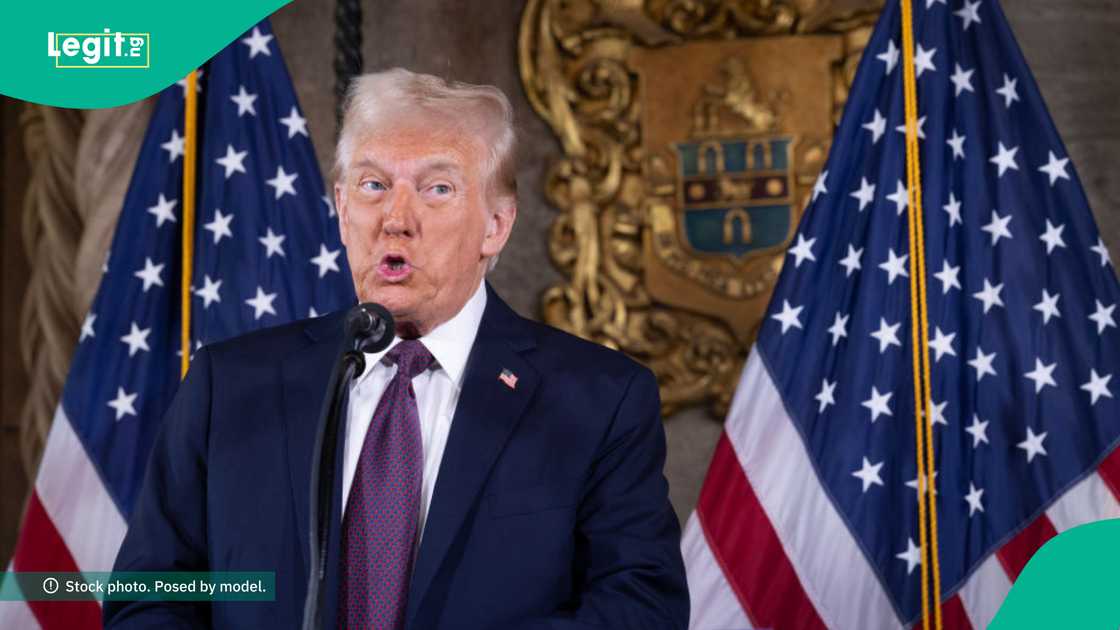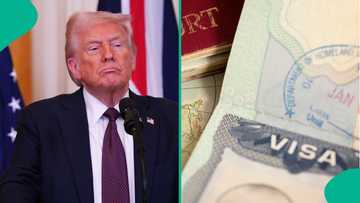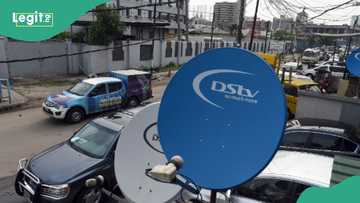US Imposes Visa Bond Up to $15,000 on High-Risk Countries in New Policy Shift
- The United States government will begin requiring foreign nationals from selected countries to post a visa bond
- The bond, payable before a visa is granted, is part of a 12-month pilot programme announced by the US State Department
- The programme will target countries with high rates of visa overstays, deficient vetting systems, among others
Legit.ng’s Pascal Oparada has reported on tech, energy, stocks, investment and the economy for over a decade.
In a major shift aimed at curbing visa overstays, the United States government will begin requiring foreign nationals from selected countries to post a visa bond of up to $15,000.
The bond, payable before a visa is granted, is part of a 12-month pilot programme announced by the US State Department.

Source: Facebook
Visa bond policy targets B-1 and B-2 visa applicants
Scheduled to start on August 20, the programme will target countries with high rates of visa overstays, deficient vetting systems, or questionable citizenship-by-investment programmes.
Visa bond policy targets B-1 and B-2 visa applicants
The bond will affect applicants seeking B-1 business and B-2 tourist visas, according to a notice published on the Federal Register website.
Applicants from countries under scrutiny by the Department of Homeland Security (DHS) will face additional scrutiny, with bonds set at $5,000, $10,000, or $15,000 depending on risk assessments.
Notably, travellers from Visa Waiver Programme countries—mostly European nations—are exempt from the new requirement.
Consular officers to decide on visa bond enforcement
While the US government has not released a list of specific countries affected, it confirmed that consular officers will have the authority to determine whether a bond is required.
The State Department notes that this discretion allows officers to evaluate each applicant’s risk profile.
If an individual complies fully with their visa terms, the bond will be refunded.
However, any overstay or violation will result in forfeiture of the bond.
Who’s affected and why it matters
According to a report by TheCable, countries with high visa overstay rates, weak identity verification systems, or those offering citizenship-by-investment without requiring residency are on the radar.
Although unnamed, many experts believe that nations in Africa, Asia, and the Caribbean may be impacted.
The DHS 2023 visa overstay report will be used to determine eligibility and enforcement criteria, which may evolve as the programme progresses.
Travellers must use designated airports
Another restriction under the pilot programme is that visa holders who post bonds must enter and exit the US through designated airports.
This move is aimed at tightening oversight and ensuring better tracking of arrivals and departures. It also signals a shift towards a more enforcement-driven visa system for high-risk countries.
A new era of US visa enforcement
The US government’s bond requirement is widely seen as part of a larger crackdown on illegal immigration and visa misuse.
While it may act as a deterrent for potential overstays, critics argue it could discourage legitimate travellers and hurt diplomatic relations with affected nations.

Source: Getty Images
The coming months will reveal whether this bond pilot becomes a permanent feature—or fades into history.
Nigerians in Canada must earn over $30k to bring parents
Legit.ng earlier reported that Nigerians who are Canadian citizens or permanent residents will now need to earn significantly more to bring their parents or grandparents into the country under Canada’s Super Visa programme.
The minimum annual income requirement has jumped to $30,526 for single-income households, up from $29,380 in 2024.
This change, which took effect in late July 2025, also affects larger households, with thresholds rising proportionately based on family size.
Source: Legit.ng





